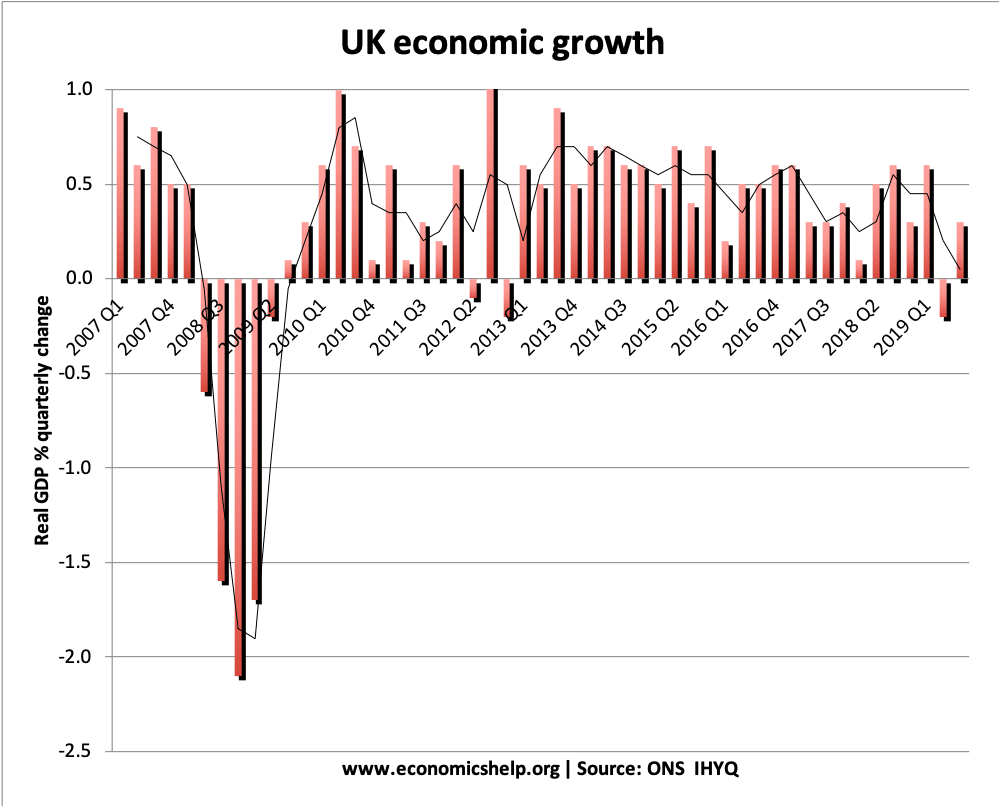Why has depreciation in pound not improved UK current account?
Readers question. Recent data suggests an increase in the current account deficit – is the depreciation of the UK pound ineffective or is it just a blip in exports that will resolve itself next quarter? The UK has experienced a persistent current account deficit since the mid 1980s (see: UK current account for more graphs) …

